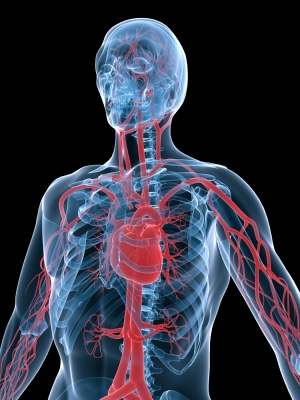Millions of people, especially women and elderly people are taking calcium on the misguided advice that calcium supplementation will prevent osteoporosis. Unfortunately without the balance of other bone-promoting minerals, calcium can lead to atherosclerosis (‘hardening’ of the arteries), and heart attacks.
In a study from the National Institutes of Health, published May 2012, it was shown that calcium supplements can actually INCREASE the risk of heart disease. This study showed that men who take calcium supplements are more likely to die of heart disease than those who do not take supplements.
Males who took at least 1000mg of calcium a day, had a 20% higher chance of dying from heart related causes compared to those who did not.
Says the lead Physician in the study, Qian Xiao, “It’s possible that calcium build-up in the blood vessels may affect cardiovascular risks in some people.”
Many of the issues surrounding calcium supplementation have to do with magnesium deficiency.
The fact is, calcium must be taken with magnesium, another vital mineral that is key to preserving bone health and also vital for heart and blood vessel health. If calcium and magnesium are not in the correct balance and ratios in the body, the calcium cannot be utilized properly in the body, and excess calcium can end up in kidneys and blood vessels instead of the bones and teeth.
MAGNESIUM deficiency can induce elevation of intracellular calcium concentrations and actually accelerate atherosclerosis. Calcium is a primary component of atherosclerotic plaque.
Magnesium, on the other hand, is a natural calcium channel blocker and should always be taken addition to supplementing with calcium or when increasing dietary calcium.
Some nutrition experts estimate that about 80% of the population is deficient in magnesium, and since magnesium and calcium must remain in the correct ratios, that means every person with a magnesium deficiency has an overabundance of calcium.
Carolyn Dean, MD, ND, who is a specialist on magnesium and its role in our health, says this about calcium and magnesium:
“Magnesium is the key to the body’s proper assimilation and use of calcium as well as Vitamin D. If we consume too much calcium with sufficient magnesium, the excess calcium is not utilized correctly and may actually become toxic, causing calcification in the arteries, leading to heart attacks, and cardiovascular disease.”
Says Dr. Dean, “There is an increasing amount of research-based verification suggesting that a high calcium combined with low magnesium intake [will] result in atherosclerosis which is the leading cause of death in the US”.
Magnesium, along with another essential vitamin, vitamin K2, remain two of the most important but overlooked ingredients for bone AND heart health.
While we have all had it drilled into our heads that insufficient calcium can lead to osteoporosis, did you know that calcium MUST be taken with both magnesium and vitamin K2 for proper absorption and utilization in the body?
Vitamin K2 is a little known, but very essential vitamin, not related to the better known vitamin K1 which comes from dark green leafy vegetables.
Vitamin K2 is somewhat difficult to obtain in the diet, as this vitamin comes primarily from the milk and butter of grass fed cows. The typical dairy products that we get in our grocery stores come from commercially raised, grain-fed cows, and do not contain vitamin K2, so consequently the majority of people get little or none of this essential vitamin.
Without vitamin K2’s ability to help escort calcium to the important areas of the body where it is needed and put to use like the bones and teeth, calcium ends up floating around in the bloodstream, with the excess being deposited in places where it is not needed and not utilized.
As a result, virtually all aging adults may suffer from excess calcium deposits in the brain, glands, heart and blood vessels. Individuals who are able to get enough vitamin K2 in their diets, actually have a 57% reduction in risk of dying of heart disease, and women who take K2 have an 81% reduction in bone fractures.
Bones contain a protein called osteocalcin that functions like studs in a house. When activated by vitamin K2, osteocalcin grabs on to the calcium and holds it in place in the bones and teeth where it is needed.
The ability of vitamin K2 to activate calcium regulating proteins and thus maintain bone density and inhibit calcification is undisputed, yet the majority of adults do not supplement with vitamin K2.
The benefits of calcium supplements in protecting against osteoporosis have been widespread for over 30 years and the result is that the aging population and women have been gobbling large quantities of calcium but neglecting to include magnesium and K2. The result has been an overabundance of calcium in our bodies and runaway osteoporosis.
So for healthy bones, and a healthy cardiovascular system, take calcium in a 1:1 ratio with magnesium, and add vitamin K2. You’ll strengthen your bones, avoid osteoporosis, and greatly reduce your chances of heart disease!
Sources
William Falloon, Life Extension Magazine, Collectors Edition, Potential danger of calcium supplements. 2013
Sarah Glynn, “Calcium Supplements Lead to Heart Disease”, Medical News Today, Feb 22, 2013




